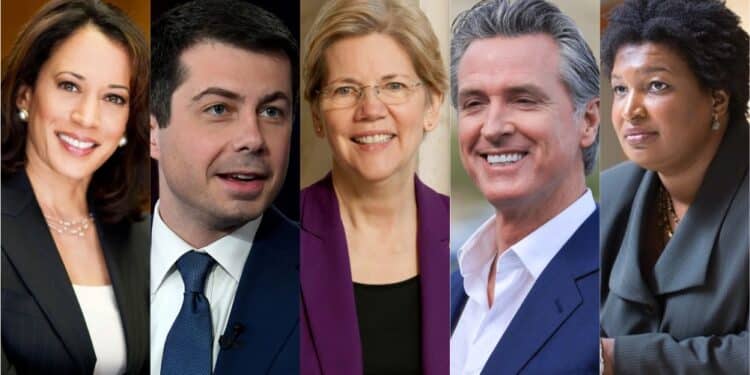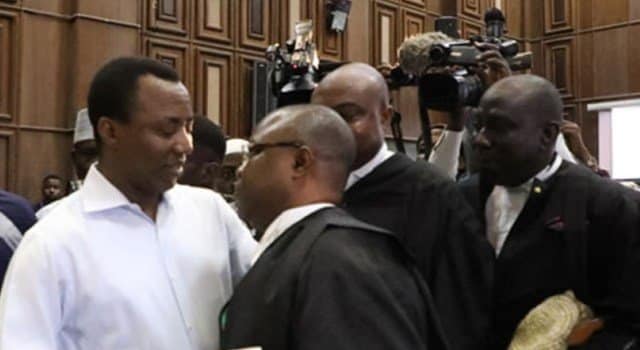The political landscape in the United States is undergoing a significant transformation, with the Democratic Party facing a crucial decision regarding its leadership for the upcoming presidential election. As President Joe Biden approaches the end of his first term, there is mounting discussion about the necessity of fresh leadership. This conversation is driven by several factors, including public sentiment, Biden’s approval ratings, and the various challenges and controversies that have marked his presidency.
Public sentiment has been notably divided throughout Biden’s tenure. While he has garnered support for his handling of issues such as the COVID-19 pandemic and economic recovery efforts, his administration has also faced criticism on multiple fronts. Key issues, including the chaotic withdrawal from Afghanistan, rising inflation, and ongoing debates over immigration policy, have contributed to fluctuating approval ratings. Recent polls indicate that a significant portion of the electorate is seeking new leadership, reflecting a broader desire for change within the party.
Joe Biden Likely Replacement
Approval ratings are a critical metric in assessing a president’s standing among voters. Throughout his term, Biden’s approval ratings have experienced peaks and valleys, influenced by both domestic and international events. Although he has achieved legislative victories, such as the passage of the Infrastructure Investment and Jobs Act, these successes have often been overshadowed by the administration’s perceived shortcomings. As a result, the Democratic Party is compelled to evaluate whether Biden remains the most viable candidate to lead them to victory in the next election.
The importance of selecting a strong candidate cannot be overstated. The upcoming election presents the Democratic Party with an opportunity to solidify its platform and appeal to a broad spectrum of voters. Ensuring the party’s success hinges on nominating a candidate who can effectively address the nation’s challenges, resonate with the electorate, and unify the party. In this context, the discussion around potential alternatives to Joe Biden signifies a strategic move to enhance the party’s prospects and maintain its competitive edge in the political arena.
Kamala Harris
Kamala Harris, the current Vice President of the United States, stands as a prominent option to replace Joe Biden on the ballot. With a robust political background that includes her tenure as a U.S. Senator from California and Attorney General of California, Harris brings substantial experience to the table. Her legislative accomplishments, notably in areas such as criminal justice reform and healthcare, underscore her capability and commitment to addressing critical issues.
Harris’s appeal extends to diverse voter groups, owing to her mixed heritage of Indian and Jamaican descent. This multicultural background, coupled with her advocacy for social justice, positions her as a relatable and inspiring figure for many minority communities. Additionally, her prosecutorial background provides her with a unique perspective on law enforcement and public safety, potentially resonating with voters concerned about these issues.
However, Harris is not without her challenges. Critics often point to her prosecutorial record, arguing that some of her policies as Attorney General were overly punitive and disproportionately affected minority communities. These criticisms could be leveraged by opponents to undermine her support among progressive voters. Furthermore, her performance as Vice President has faced scrutiny, with some detractors questioning her visibility and effectiveness in the role.
Despite these potential weaknesses, Harris’s strengths are substantial. Her experience in the Senate has equipped her with a deep understanding of legislative processes, and her ability to connect with a wide array of voter demographics is a significant asset. As the first female Vice President, she symbolizes progress and change, qualities that could galvanize a broad coalition of voters. Ultimately, her candidacy would hinge on her ability to address criticisms head-on while reinforcing her commitment to the values and policies that resonate with the electorate.
Pete Buttigieg
Pete Buttigieg, the current Secretary of Transportation, emerges as a significant contender in discussions about potential replacements for Joe Biden on the ballot. Buttigieg first rose to national prominence as the mayor of South Bend, Indiana, where he served from 2012 to 2020. During his tenure, he garnered attention for his efforts in urban revitalization and innovative approaches to economic development. His bold initiatives in transforming South Bend’s infrastructure and fostering a technology-driven economy underscore his forward-thinking mindset and capability to handle complex administrative challenges.
Buttigieg’s 2020 presidential campaign highlighted his appeal to younger voters and his knack for presenting fresh, progressive ideas. His policy proposals, such as Medicare for All Who Want It and a comprehensive climate change plan, resonated well with a demographic eager for change and innovation. Buttigieg’s ability to articulate a vision that blends pragmatism with aspirational goals has positioned him as a prominent figure within the Democratic Party.
Despite his appeal, Buttigieg faces certain challenges, primarily his relative lack of national political experience. Though his role as Secretary of Transportation has expanded his portfolio and provided him with valuable exposure to federal governance, critics argue that he might lack the extensive political capital needed for a successful presidential bid. Overcoming this hurdle would require Buttigieg to leverage his achievements in the Biden administration, emphasizing his contributions to improving national infrastructure and advancing transportation policies that align with broader economic and environmental goals.
Moreover, Buttigieg’s adeptness at connecting with a diverse electorate could play a crucial role in mitigating concerns about his experience. His ability to communicate effectively across different voter segments, coupled with his demonstrated competence in managing urban and federal responsibilities, could bolster his candidacy. As the political landscape evolves, Buttigieg’s blend of youthful energy and policy acumen may well position him as a viable and compelling option on the ballot.
Elizabeth Warren
With her extensive political career and deep economic and financial policy expertise, Senator Elizabeth Warren is a formidable option to replace Joe Biden on the ballot. Her tenure in the Senate has been marked by a relentless focus on consumer protection, financial regulation, and economic equity, making her a key figure in progressive politics. Warren’s reputation as a progressive leader is underpinned by her advocacy for policies such as the wealth tax, student loan forgiveness, and comprehensive healthcare reform.
Warren’s ability to energize the Democratic base was evident during her 2020 presidential campaign. Although she did not secure the nomination, her performance in the primaries showcased her capability to mobilize grassroots support and articulate a clear vision for America’s future. Her campaign was distinguished by detailed policy proposals and a commitment to addressing systemic inequalities, resonating with a significant segment of the electorate.
However, Warren’s candidacy is not without potential challenges. At 74, her age could become a concern for some voters, particularly in a political climate increasingly attentive to generational change. Additionally, her policies, often perceived as too far left, could face scrutiny in a general election. Critics argue that her progressive agenda may alienate moderate and independent voters, crucial demographics in a national contest.
Mitigating these concerns, Warren could emphasize her pragmatic approach to policymaking, highlighting successful bipartisan efforts and her ability to achieve tangible results. By framing her progressive policies within the broader context of economic stability and growth, she could appeal to a wider electorate who may share her concerns about economic inequality but are wary of radical changes.
In conclusion, Elizabeth Warren’s candidacy would bring a wealth of experience and a bold vision to the 2024 presidential race. Her ability to galvanize the Democratic base and strategic messaging to address potential criticisms could position her as a strong contender to replace Joe Biden on the ballot.
Gavin Newsom
California Governor Gavin Newsom emerges as a compelling option for the Democratic Party. Newsom’s political career is marked by his ascension through the ranks of California’s political landscape. Starting as the Mayor of San Francisco, he later served as the Lieutenant Governor before assuming the governorship in 2019. His tenure has been characterized by proactive and often progressive policies, particularly in climate change, healthcare, and social justice.
During the COVID-19 pandemic, Newsom’s leadership drew both praise and criticism. He implemented some of the strictest lockdown measures in the country, arguing that stringent public health protocols were necessary to curb the spread of the virus. His actions undoubtedly saved lives, but they also sparked significant opposition, leading to a recall effort that he successfully overcame. This episode underscored his resilience and ability to mobilize support in a highly polarized environment, qualities crucial for a presidential contender.
Newsom’s progressive stance on key issues resonates strongly with liberal voters. He has been a vocal advocate for aggressive climate action, pushing forward ambitious initiatives to reduce carbon emissions and transition California to renewable energy sources. In the healthcare domain, Newsom has championed policies aimed at expanding access and affordability, including efforts to implement a single-payer system in the state.
Newsom’s political acumen is evident in his ability to win elections in a large, diverse state like California. This experience could be invaluable on the national stage, where coalition-building and appealing to a broad demographic are essential. However, his potential candidacy is not without drawbacks. Critics argue that his handling of certain state issues, such as homelessness and wildfires, has been less than effective. Additionally, his progressive policies might alienate moderate or conservative voters, posing a challenge in a general election.
Nevertheless, Gavin Newsom’s blend of experience, progressive vision, and proven electoral success positions him as a formidable candidate. His ability to navigate complex political landscapes and his unwavering commitment to liberal ideals make him a viable option to consider for the Democratic nomination.
Stacey Abrams
Stacey Abrams, a prominent figure in American politics, has garnered national attention through her vigorous advocacy for voting rights and impactful role as the former Georgia House Minority Leader. Her efforts have significantly contributed to expanding voter access, particularly among marginalized communities, which played a pivotal role in the Democratic victories in Georgia during the 2020 elections. Abrams’ work in mobilizing grassroots support and her extensive voter registration drives have led to a notable increase in voter turnout, cementing her influence in the political landscape.
Abrams’ appeal extends notably to minority and young voters, demographics that are crucial for any Democratic campaign. Her ability to connect with these groups, coupled with her dedication to addressing issues that specifically affect them, positions her as a compelling candidate. Abrams has demonstrated a unique capacity to inspire and engage voters who often feel overlooked by traditional political strategies, thus amplifying her potential to galvanize a broad coalition of support.
However, despite her strengths, Abrams faces significant challenges, primarily relating to her lack of executive experience. Critics argue that her absence of a background in high-level governmental administration could be a disadvantage in a presidential race. To address these concerns, Abrams could emphasize her legislative accomplishments and proven leadership in driving policy changes. Additionally, highlighting her collaborative efforts with other leaders and her strategic vision in navigating complex political landscapes could help mitigate apprehensions regarding her executive capabilities.
Conclusively, Stacey Abrams’ candidacy presents a dynamic option characterized by her commitment to voter rights, appeal to key voter demographics, and ability to mobilize grassroots support. While she may need to address concerns about her executive experience, her proven track record in legislative leadership and voter advocacy positions her as a formidable contender in the US elections.
Biden Replacement: Weighing the Options
As we reflect on the five potential candidates to replace Joe Biden on the ballot box, it is crucial to consider their strengths, weaknesses, and unique qualities. Each candidate offers a different approach and vision for the future, posing distinct strategic considerations for the Democratic Party.
First, we have Kamala Harris, whose experience as Vice President and previous roles in government position her as a strong contender. Her strengths lie in her prosecutorial background and ability to connect with diverse voter demographics. However, her perceived association with the current administration’s challenges could be a potential drawback.
Next is Pete Buttigieg, the Secretary of Transportation, who brings a fresh perspective and proven oratory skills. His appeal to younger voters and innovative approach to policy are significant assets. However, his limited experience in higher office could be a limitation.
Elizabeth Warren stands out with her deep policy expertise and progressive stance on economic issues. Her ability to articulate detailed plans and her dedication to systemic change are her primary strengths. Conversely, her progressive views may alienate moderate voters.
Gavin Newsom, the Governor of California, offers executive experience and a proven track record in managing a large state. His strengths are his leadership in progressive policies and crisis management. However, his handling of certain state issues might be scrutinized on the national stage.
Lastly, we consider Cory Booker, whose charisma and focus on unity are compelling. His emphasis on social justice and community building resonates with many voters. Yet, his previous presidential campaign’s lack of traction could be seen as a weakness.
The Democratic Party must carefully weigh these candidates’ electability, policy priorities, and appeal to various voter demographics. This decision is pivotal not only for the party’s future but also for the direction of the country. The chosen candidate must embody the values and aspirations of the electorate, ensuring a cohesive and forward-looking vision for the United States.











